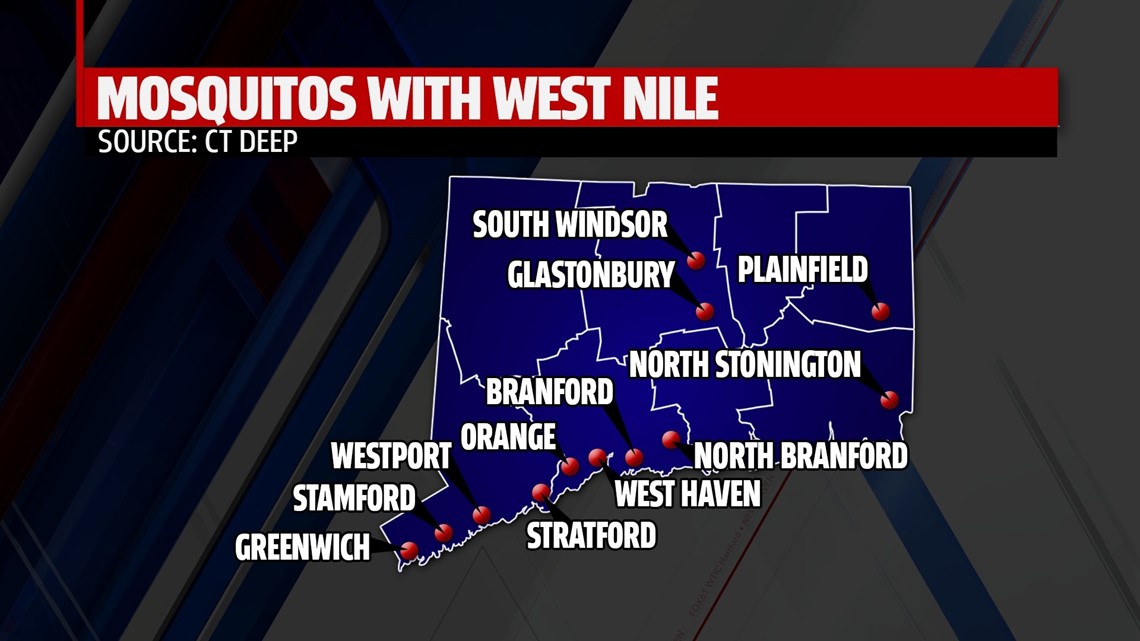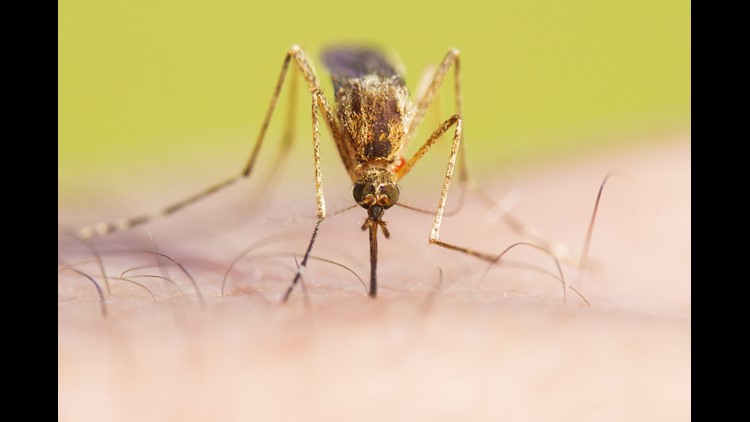HARTFORD — The Connecticut Agricultural Experiment Station announced Wednesday that mosquitoes in 12 towns have tested positive for West Nile virus so far this season.
Branford and North Branford were the latest towns to be added to the list, joining Glastonbury, Greenwich, North Stonington, Orange, Plainfield, South Windsor, Stamford, Stratford, West Haven, and Westport.


“This is the critical time of the year when virus activity reaches its peak in the mosquito population,” said Dr. Philip Armstrong, Medical Entomologist at the CAES, in a statement.
“Historically, August and September are the months when the majority of human cases occur and represent the greatest risk for acquiring West Nile virus infection,” said Dr. Theodore Andreadis, Director of CAES, in the same statement.
No human cases of West Nile, or illnesses associated with the virus, have been reported in Connecticut so far this season. Last year, there was only one reported case of the virus.
There have been 133 cases of West Nile virus diagnosed in Connecticut residents since 2000. Three of those cases resulted in fatalities.
The CAES suggests a number of tips to reduce the risk of being bitten by mosquitoes and potentially prevent contracting West Nile. They include:
- Minimize time spent outdoors between dusk and dawn when mosquitoes are most active.
- Ensure door and window screens are tight-fitting and in good repair.
- Wear long, light-colored clothing when outdoors for long periods of time, or when mosquitoes are more active.
- Use mosquito netting when sleeping outdoors or in an unscreened structure.
- Consider using mosquito repellent when outdoors.
“Now is the time to take precautions to prevent mosquito bites,” Andreadis said.
The CAES maintains a network of 91 mosquito-trapping stations in 72 cities and towns throughout Connecticut. Positive findings are reported to local health departments and on the CAES website here.



